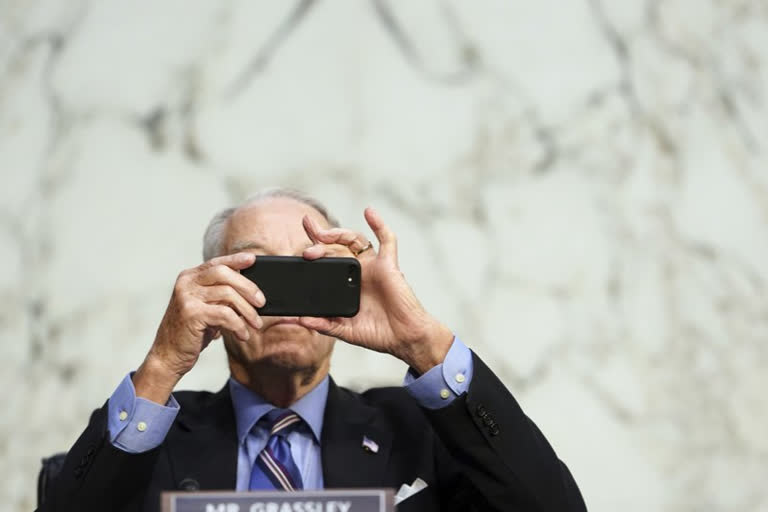Brussels:The conversation taking place on the verified social media accounts of two US senators remained vulnerable to manipulation, even amid heightened scrutiny in the run up to the US presidential election, an investigation by the NATO Strategic Communications Centre of Excellence found.
Researchers from the center, a NATO-accredited research group based in Riga, Latvia, paid three Russian companies 300 euros (USD 368) to buy 337,768 fake likes, views and shares of posts on Facebook, Instagram, Twitter, YouTube and TikTok, including content from verified accounts of Sens. Chuck Grassley and Chris Murphy.
Grassley's office confirmed that the Republican from Iowa participated in the experiment.
Murphy, a Connecticut Democrat, said in a statement that he agreed to participate because it's important to understand how vulnerable even verified accounts are.
We've seen how easy it is for foreign adversaries to use social media as a tool to manipulate election campaigns and stoke political unrest," Murphy said.
It's clear that social media companies are not doing enough to combat misinformation and paid manipulation on their own platforms and more needs to be done to prevent abuse.
In an age when much public debate has moved online, widespread social media manipulation not only distorts commercial markets, it is also a threat to national security, NATO StratCom director Janis Sarts told The Associated Press.
These kinds of inauthentic accounts are being hired to trick the algorithm into thinking this is very popular information and thus make divisive things seem more popular and get them to more people.
That in turn deepens divisions and thus weakens us as a society, he explained.
More than 98 per cent of the fake engagements remained active after four weeks, researchers found, and 97 per cent of the accounts they reported for inauthentic activity were still active five days later.
NATO StratCom did a similar exercise in 2019 with the accounts of European officials. They found that Twitter is now taking down inauthentic content faster and Facebook has made it harder to create fake accounts, pushing manipulators to use real people instead of bots, which is more costly and less scalable.
We've spent years strengthening our detection systems against fake engagement with a focus on stopping the accounts that have the potential to cause the most harm, a Facebook company spokesperson said in an email.
But YouTube and Facebook-owned Instagram remain vulnerable, researchers said, and TikTok appeared defenseless.
